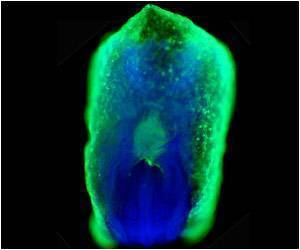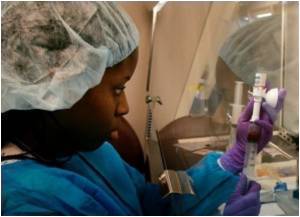Understanding the role of protein synthesis during cell division will shed light on when cells will initiate their division, how fast they will complete it.

‘The enzymes that make lipids and membranes were synthesized at much greater efficiency when a cell is ready to split.’





Microscopy images of dividing yeast cells accumulating lipid
droplets (shown as bright spots) because they have lost their ability to
regulate the synthesis of a key lipogenic enzyme. Polymenis said the finding provides new targets for controlling cell division in future studies.
"Understanding the role of protein synthesis during cell division will shed light on when cells will initiate their division, how fast they will complete it, the number of successive cell divisions, and the coordination of cell proliferation with the available nutrients," said Dr. Heidi Blank, Texas A&M University assistant scientist and the paper's co-author.
The research profiled yeast cells from the time of cell birth to identify messenger RNAs as they translated into proteins. That showed the development of lipids late in the cell cycle and the connection to cell division.
The report, which included scientists from Texas A&M and The Buck Institute for Research on Aging, noted that no studies previously had "queried directly and comprehensively the efficiency with which each individual protein is made during cell division in growing cells."
Advertisement
"If the dream of every cell is to become two cells as the Nobelist François Jacob famously quipped in 1971, then it is protein synthesis that makes cellular dreams come true," he said. "Protein synthesis underpins much of cell growth and determines the rate at which cells proliferate."
Advertisement
Source-Eurekalert











